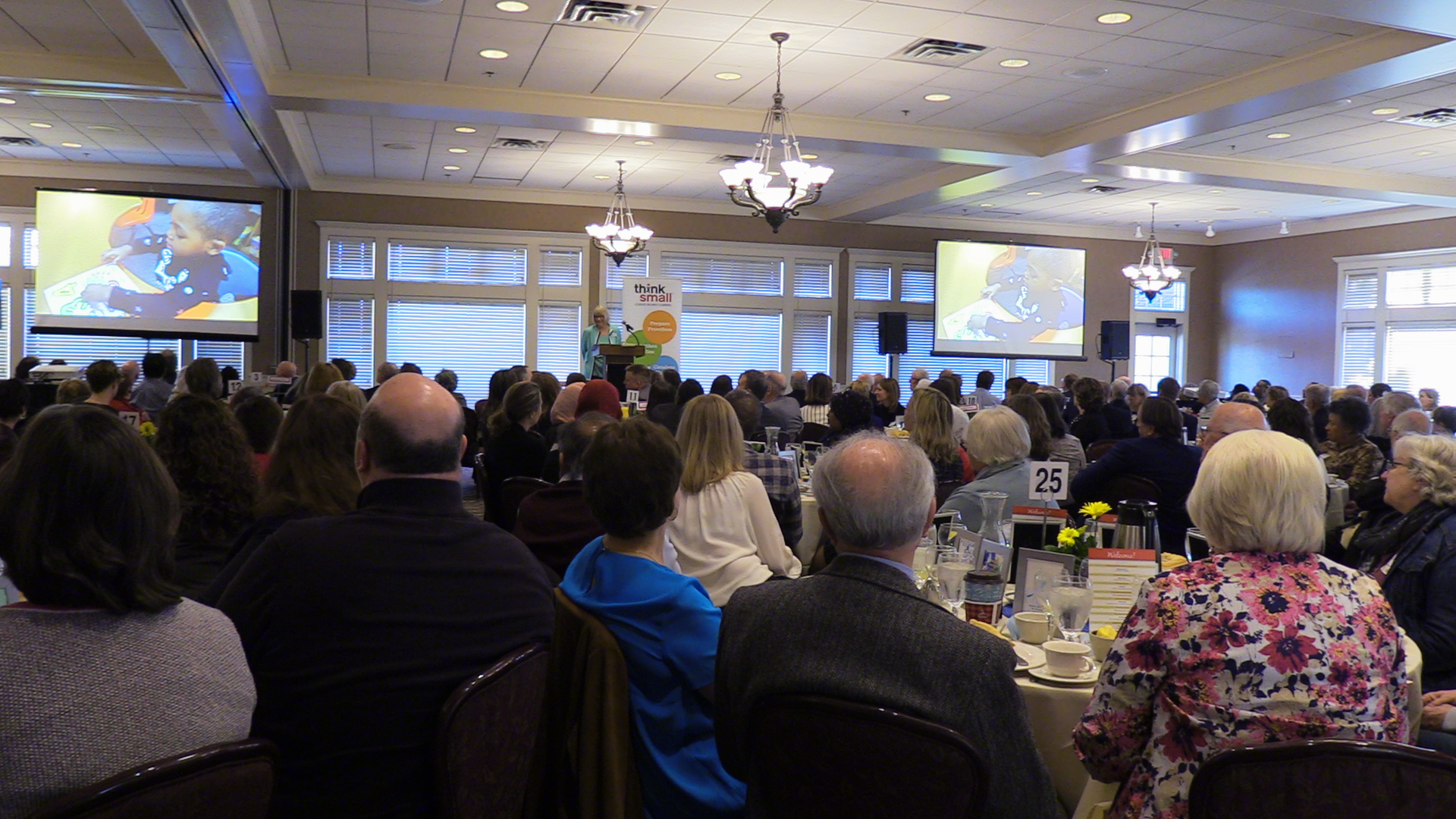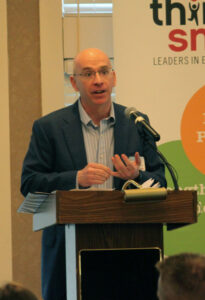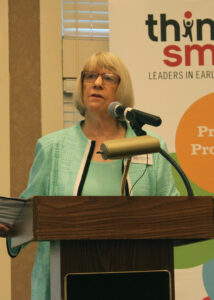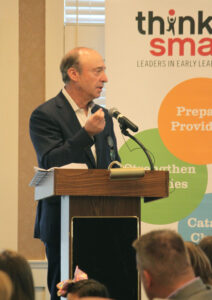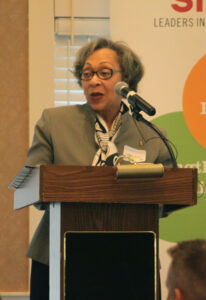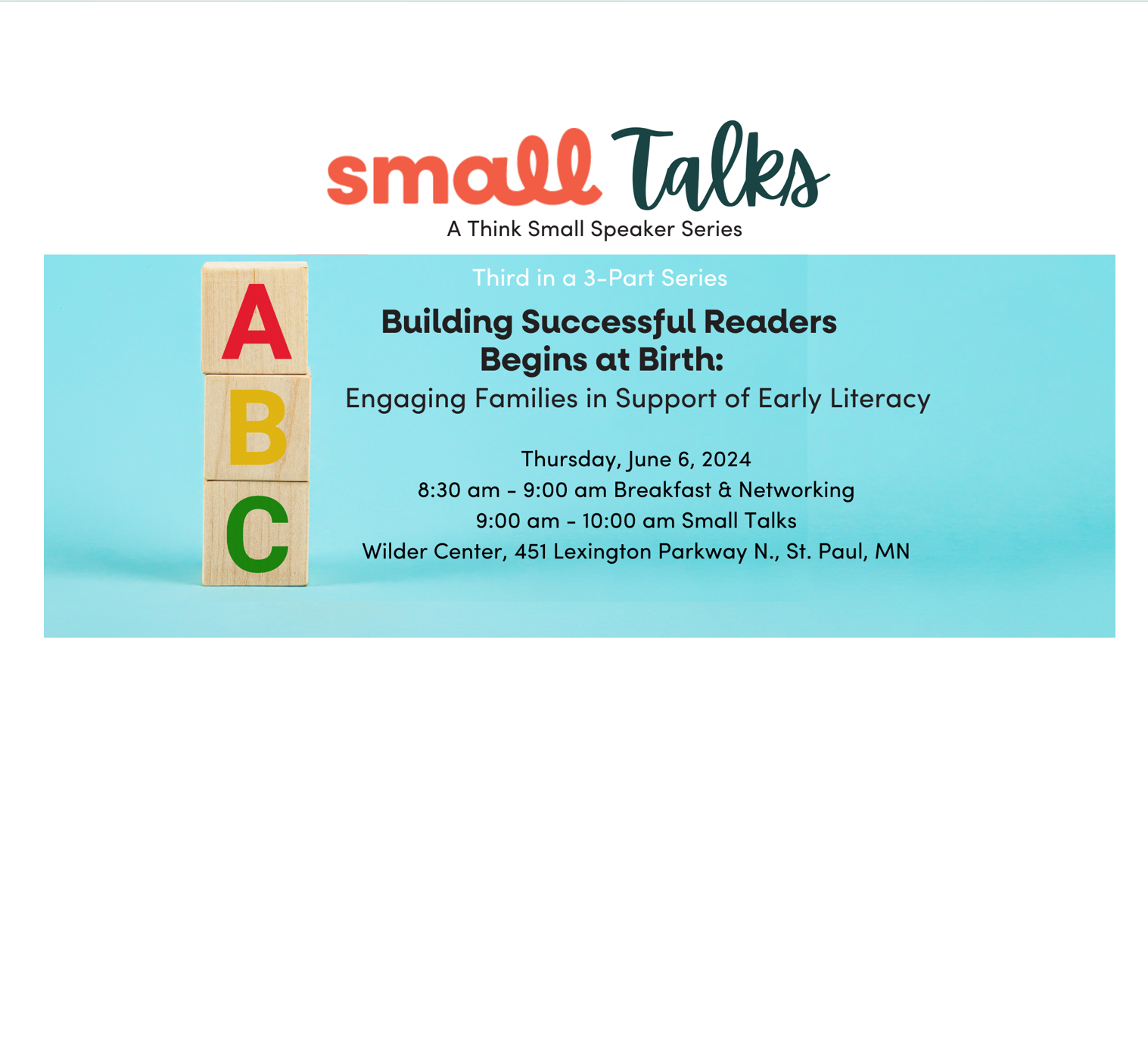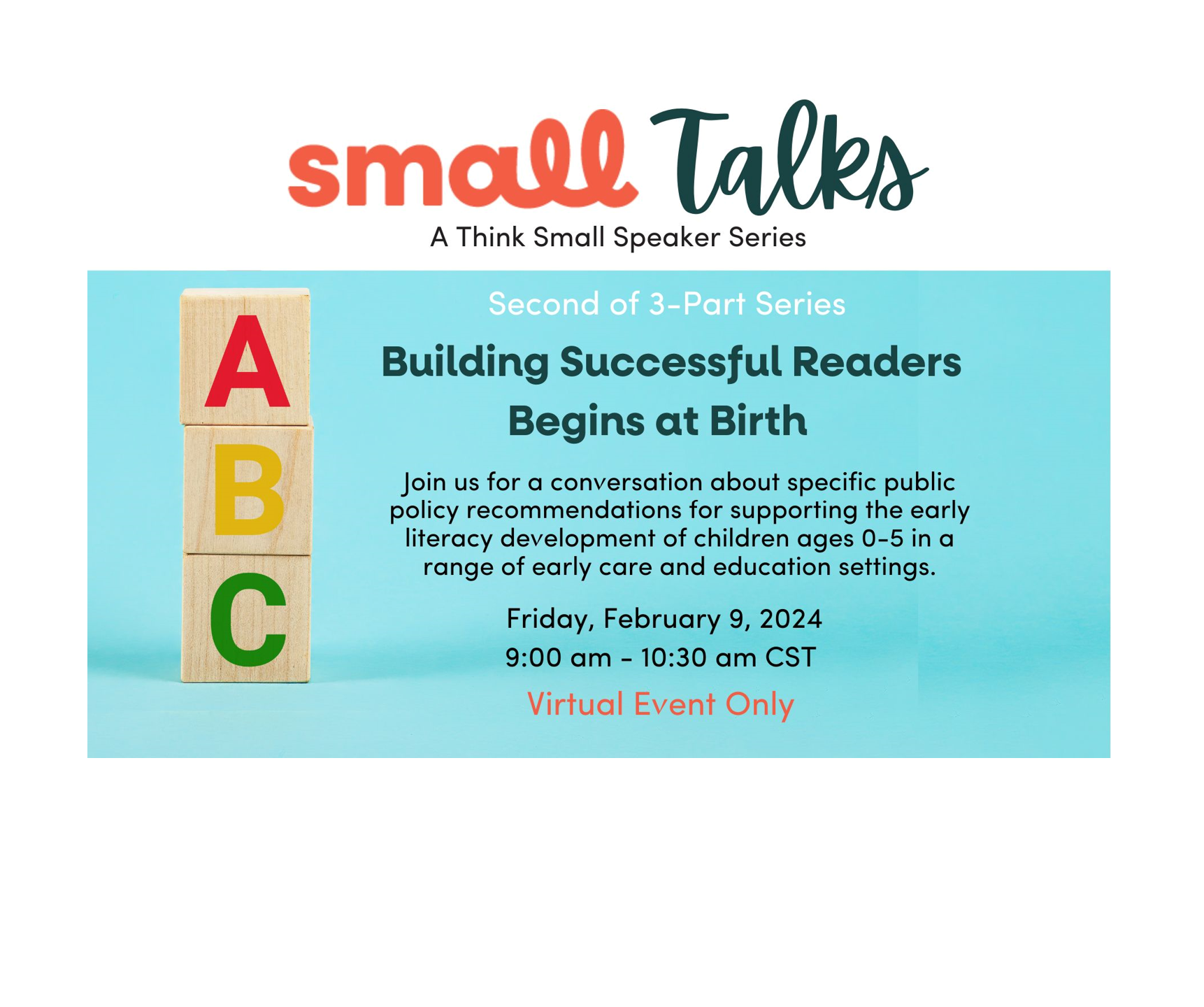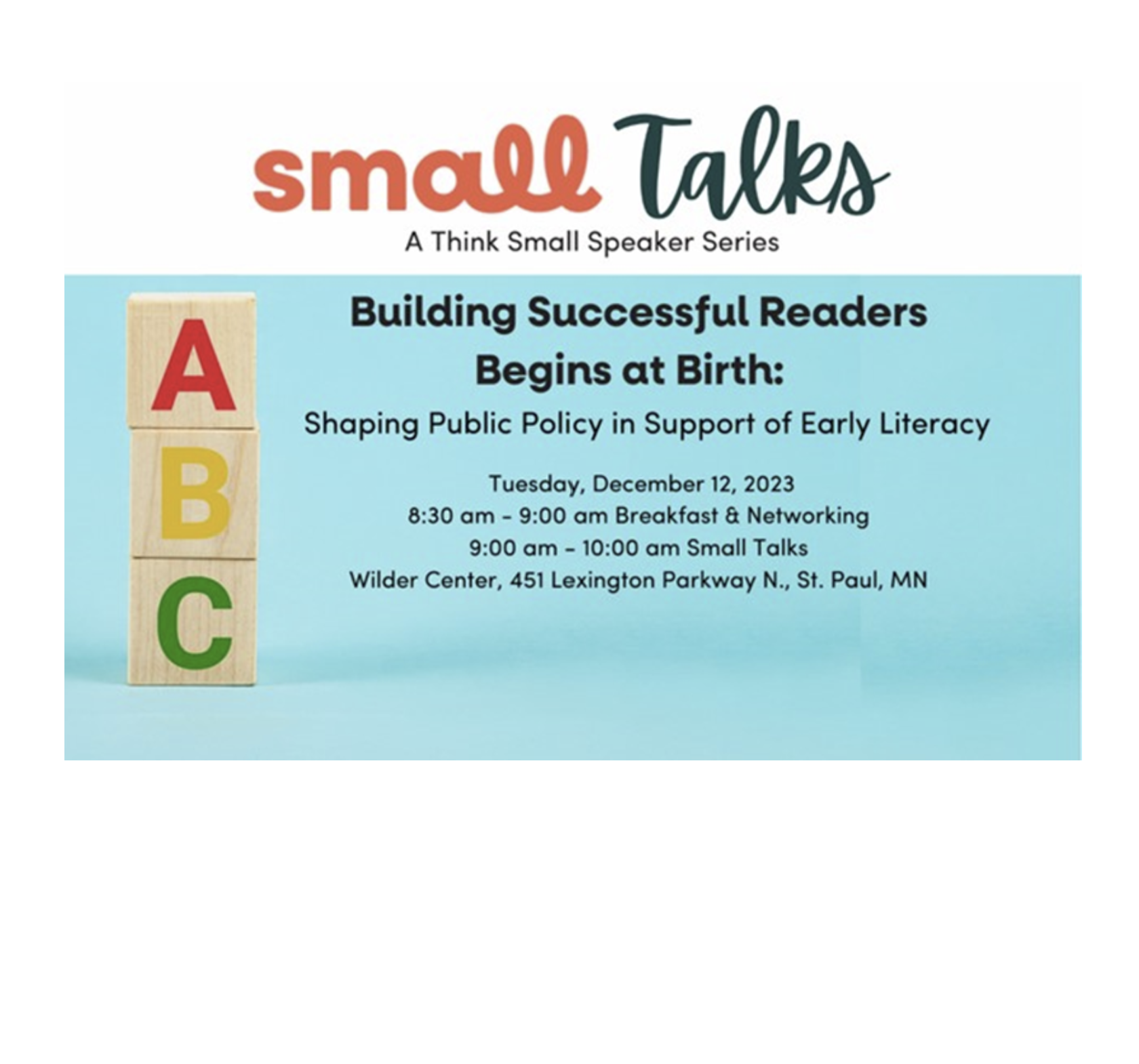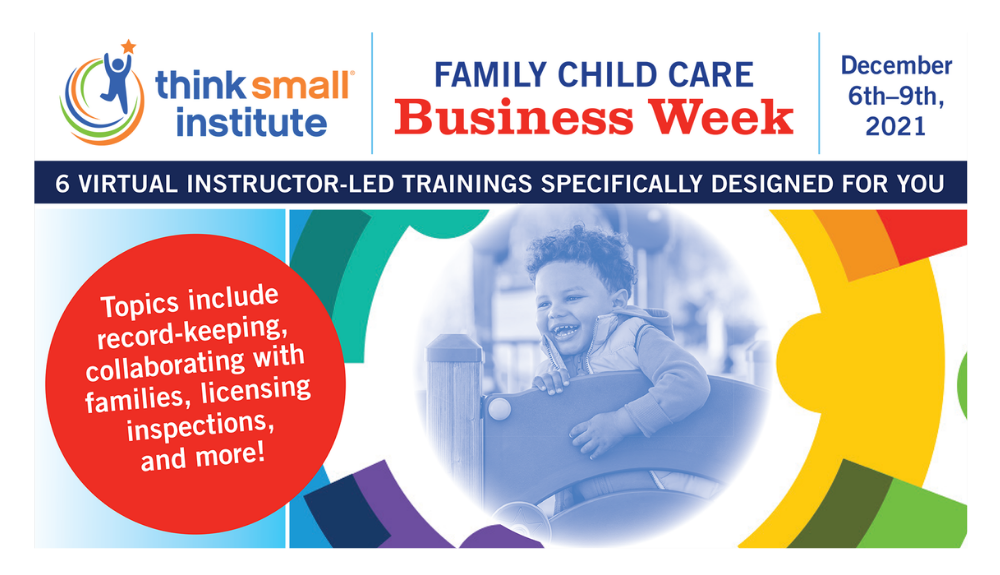By Kristie Thorson
At Think Small, we picture a brighter future for Minnesota’s kids. We picture a day when ALL young children have access to high-quality early care and education so they will be ready for success in kindergarten and life.
In order to support our mission of advancing quality care and education for children in their crucial early years, nearly 250 special guests and friends of Think Small gathered for a fundraising breakfast on April 25, 2018.
Speakers at the event included Think Small Board Chair, Marshall Johnson, Board Development Committee Chair, Bud Hayden, and Think Small President and CEO, Barbara Yates. Yates spoke about Think Small’s work to prepare providers, strengthen families and catalyze change. Her remarks focused on innovation and partnerships.
“I would be hard-pressed to point to any work of Think Small that doesn’t involve multiple partners,” said Yates. “Through our partnerships, we are able to identify challenges for families seeking and receiving high-quality early learning and to come up with innovations to address those challenges.”
Yates called early learning scholarships in combination with the Parent Aware framework the most significant innovation to hit early childhood in Minnesota.
Economist and Think Small board member, Art Rolnick, took the podium from there. In his keynote address, he described Think Small as a driving force behind what is now nationally-known as the research-based Minnesota Model for Early Learning. He said the state puts 70 million dollars a year toward the early learning scholarship program. While scholarships are providing access to high-quality early education for tens of thousands of low-income Minnesota kids, there are still thousands and thousands of young children being left behind.
“Children from low-income families, our most vulnerable kids – are starting school way behind, and when they start school way behind, they don’t catch up. That has a huge impact, not just to the child and the family, but to society,” said Rolnick. “This is your future workforce. This is really about economic development. If these kids don’t succeed, we don’t succeed as an economy.”
The bottom line, Rolnick went on to say, is that high-quality early care and education gives a great return on investment. Based on research, solutions must start early, target the most at-risk kids, be parent-focused, and be high-quality.
Another featured speaker, Phyllis Sloan, Executive Director of La Crèche Early Childhood Centers in Minneapolis, shared how early learning scholarships make a difference to the families she works with on a daily basis.
“Without scholarship awards, families often abruptly lose the security, safety and stability of care for their child or children to be school ready,” said Sloan. “If this happens, due to child care being linked to employment, and employment to housing, a family who loses care for their child or children will start an immediate downward spiral.”
The event also featured video testimonials from two Twin Cities families – the first from Minneapolis mother, Nichole Flowers, who shared how two-year old son Stephon was able to attend a four-star Parent Aware rated child care program thanks to the early learning scholarship they are receiving.
The second story focused on a former scholarship recipient and her family. Bloomington mother, Liss Idrovo, shared how her seven-year old daughter Emma is an early education success story.
After the video played, a very outgoing Emma surprised the audience with a special guest appearance. She read a short letter in front of the large crowd and even received a standing ovation.
To watch Emma read her letter at the breakfast, click below.
Emma’s story is inspiring because when children receive high-quality early learning opportunities they are not only able to learn and grow—but thrive—in ways far beyond our imagination.
“Think Small doesn’t think small, they think big. They want you to think big,” said Rolnick. “They’ve become the voice of all children, in particular the most vulnerable children.”
Photos from the ‘Picturing Brighter Futures’ breakfast are available on Think Small’s website.

